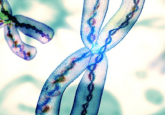Long-term effects of ‘chemobrain’ following chemotherapy demonstrated in mice

With long-term cognitive impairment following chemotherapy gaining increasing attention yet remaining unproven, researchers from the University of Illinois (USA) sought to clarify the phenomenon of ‘chemobrain’ in breast cancer. While quality of life after chemotherapy is increasingly in the spotlight owing to improvements in survival, most studies into chemobrain have only assessed short-term effects.
Furthermore, while drugs are likely to be able to counteract any chemotherapy-associated cognitive impairments, nonpharmaceutical interventions are preferred owing to the potential for complications.
Utilizing a mouse model mimicking the post-menopausal female population treated for breast cancer, the interdisciplinary group, led by Catarina Rendeiro and including experts in psychology and nutrition, assessed the effects of two doses of Doxorubicin, Cyclophosphamide and 5-Fluorouracil separated by 1 week.
They analyzed a variety of factors including learning and recall; locomotor activity; motor performance; behavior; survival and differentiation of new neurons; and proliferation of new cells in the dentate gyrus. Control mice were treated with a saline vehicle, and all mice received BrdU injections to label dividing cells during the 1-week interval. In addition, the effects of a diet enriched in omega-3-fatty acids on any impairments were studied.
While locomotor activity, motor performance and anxiety-like behavior were unaffected, survival of new neurons and proliferation of new cells in the dentate gyrus were reduced by 26 and 14%, respectively. In addition, a persistent impairment in learning and recall in the Morris water maze was demonstrated. Omega-3-fatty acids failed to result in any improvement.
Providing one of the first animal models available to test long-term cognitive deficits following chemotherapy, the researchers hope their model will be useful for both identifying mechanisms involved in chemobrain and studying alternative lifestyle interventions to ameliorate it.
Sources: Rendeiro C, Sheriff A, Bhattacharya TK et al. Long-lasting impairments in adult neurogenesis, spatial learning and memory from a standard chemotherapy regimen used to treat breast cancer. Behav. Brain Res.315, 10—22 (2016); University of Illinois Press Release: Study confirms long-term effects of ‘chemobrain’ in mice.



